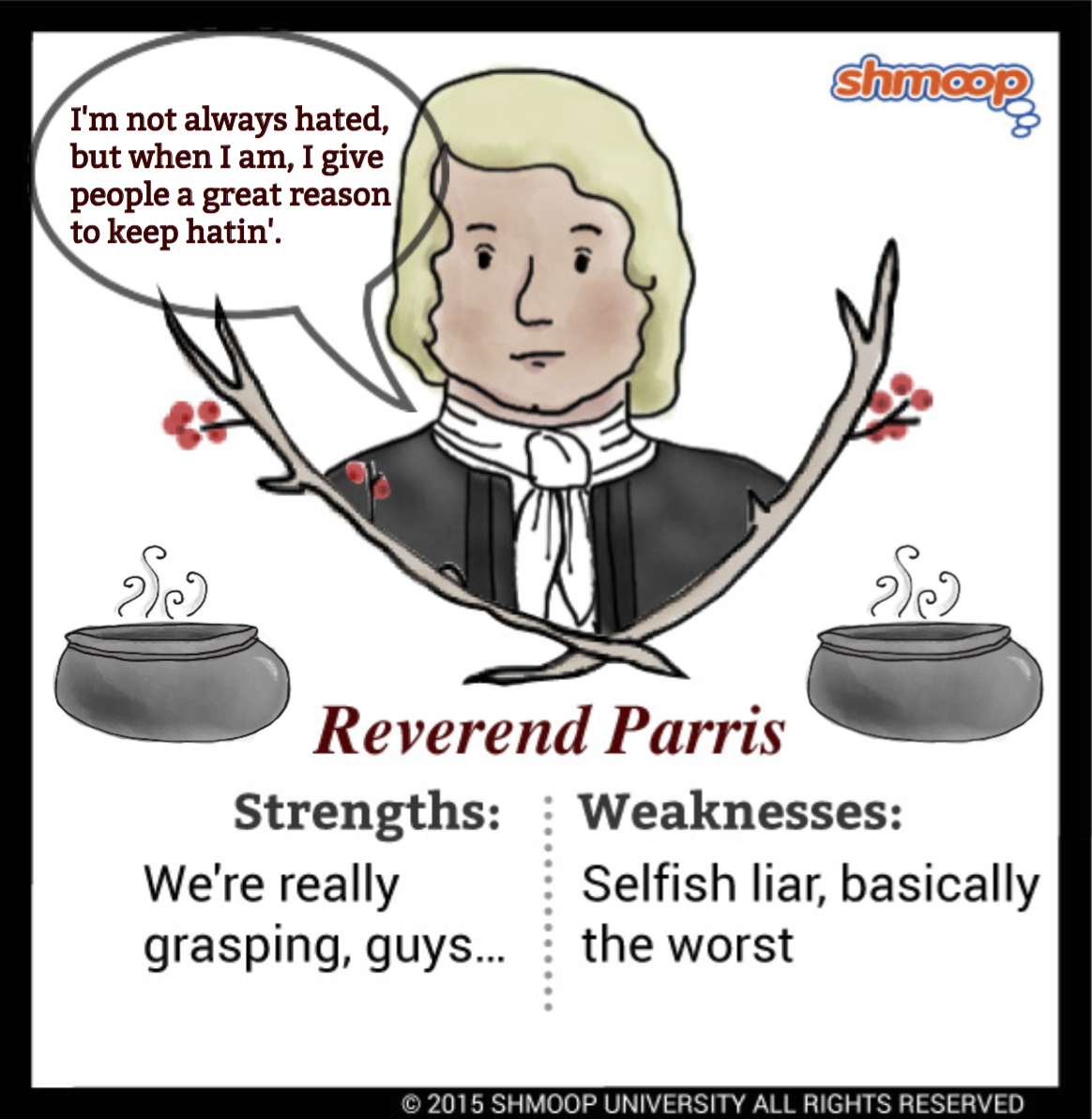Character Analysis

(Click the character infographic to download.)
He's Such a Snake that He Should Live in Slytherin
Parris is a wormy little character. If Abigail is a magnetic, Saruman-like villain, Parris is more like Wormtongue. There is nothing we like about this dude.
Miller says in his notes that he found nothing redeemable about the historical Parris. As a result, he evidently felt no need to make his fictional version any better. First of all, Parris is greedy. John Proctor accuses Parris of this several times in the play. The Reverend gives weak justifications, but never denies any of the accusations. Some examples of Parris's greed include: quibbling over firewood, insisting on gratuitous golden candlesticks for the church, and demanding (against time-honored tradition) that he have the deed to the house he lives in.
Parris's repeated demonstrations of exceedingly selfish behavior don't help his case. In the very first scene, we see him standing over his daughter's sick bed. At first the audience might feel bad for him. But then they'd quickly realize that Parris is just worried about his reputation. He's afraid that if people think there's witchcraft in his household, he'll lose his position as minister of Salem:
PARRIS, studies her, then nods, half convinced: Abigail, I have fought here three long years to bend these stiff-necked people to me, and now, just now when some good respect is rising for me in the parish, you compromise my very character. I have given you a home, child. I have put clothes upon your back—now give me an upright answer. Your name in the town—it is entirely white, is it not? (I.63)
In Act III, he shows his spineless selfishness once again when he perjures himself (intentionally lies in court). He tells the court that he saw no naked dancing in the woods—but we know that he did, because he says as much to Abigail.
Parris's lack of redeemable qualities becomes even more apparent in Act IV. At first it seems like he may have come to his senses, because he's asking Danforth to postpone the hangings. Abigail has flown the coop, making it pretty dang obvious that she was lying the whole time. It turns out that Parris isn't pleading out of remorse at all, though: he's only concerned for his own life. He found a dagger in his front door and is afraid that if respectable citizens like John Proctor and Rebecca Nurse are hanged, the town will revolt.
Most despicably we see Parris cry—not because of all the people he's helped senselessly murder, but because Abigail stole his money and he's now broke. Yes, by the end of the play, Reverend Parris is thoroughly exposed as the sniveling parasite that he is.
Reverend Parris Timeline